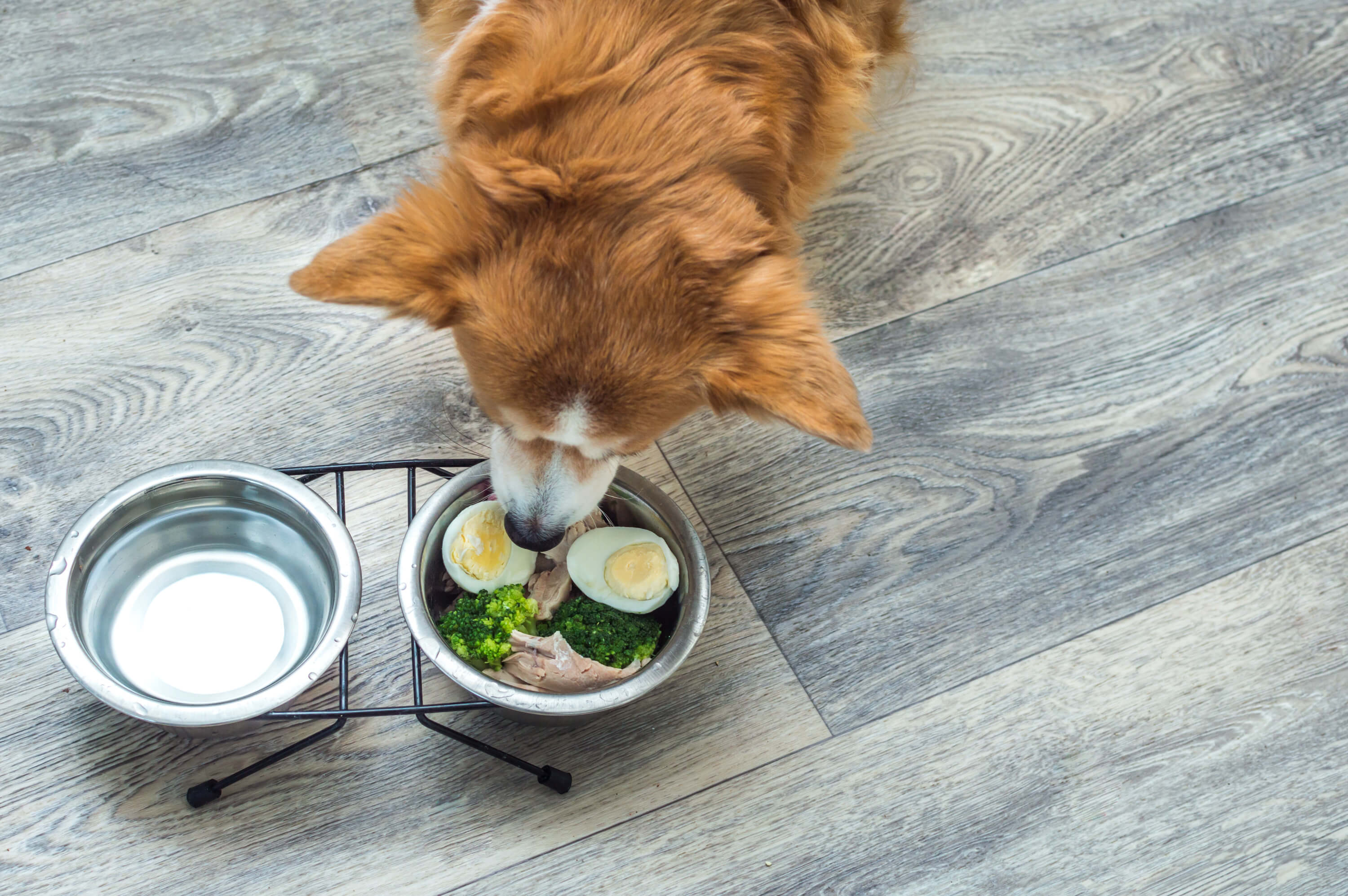
How to Manage Your Dog’s Gut Health with Nutrition
The saying, “You are what you eat,” not only applies to humans—it also applies to dogs! Your pup’s gut health is critical to their wellbeing, and poor nutrition can lead to a host of serious health concerns. Prioritizing their gut health paves the way to everything from better digestion to a happier mood.
Learn how you can manage your dog’s gut health with nutrition and get practical tips and advice that you incorporate into your pup’s everyday routine.
Understanding canine gut health
A dog’s digestive system is intricate. Your four-legged friend has a complex gastrointestinal tract consisting of the stomach, small intestine, large intestine and colon, where food is broken down and nutrients are absorbed.
Gut microbiota (bacteria and yeast) play a vital role in maintaining gut health by aiding digestion, producing essential nutrients and supporting the immune system. When the gut microbiome is disrupted, it can cause several gut-related problems in dogs such as constipation, diarrhea or inflammatory bowel disease. Choosing a diet rich in high-quality ingredients protects the gut microbiota and promotes a healthy gut and, in turn, a happier pooch.
Why gut health is important for dogs
Just like with humans, digestive issues can significantly impact a dog’s quality of life. Dogs that suffer from gastrointestinal problems—such as chronic diarrhea, constipation or food allergies—may experience discomfort, pain and reduced appetite. Digestive issues can lead to nutrient deficiencies, weight loss and general weakness in dogs. It’s not only related to the gut, either. Poor gut health can impact your dog’s skin and coat, mood and risk of chronic disease.
It’s important to prioritize good nutrition to support optimal gut health in dogs. A balanced, high-quality diet that includes essential vitamins, minerals and fiber can promote healthy digestion, nutrient absorption and a strong immune system. It starts by carefully consider what you’re feeding your beloved furry friend.

Choosing the right diet for good gut health
When it comes to supporting your dog’s gut health and digestive system, you can’t overstate the importance of a healthy, high-quality diet. Make sure you’re feeding your pup food that contains real, whole-food ingredients and avoids fillers, artificial additives and preservatives.
Some other important considerations include:
- Food sensitivities and allergies: Identifying food sensitivities and allergies can go a long way in promoting a healthy gut for your dog. Some common allergens dogs can suffer from include grains, dairy and certain proteins such as chicken or beef. If you’re wondering which foods may be causing your pup discomfort, a trip to the vet for allergy testing may be a helpful step in identifying any potential food sensitivities.
- Dietary fiber: Not only does dietary fiber help regulate bowel movements, it also promotes the growth of beneficial bacteria in the gut. Excellent sources of fiber for dogs include fruits and vegetables such as sweet potatoes, green beans, carrots and apples. Also, incorporating whole grains like brown rice and oatmeal can help. Your dog will love these tasty additions to their diet!
- Probiotics and prebiotics: You can soothe your dog’s gut and support digestive function with probiotics and prebiotics. Prebiotics are a type of fiber that serve as food for the healthy bacteria in your dog’s gut, while probiotics are live microorganisms that help balance the gut flora. Some great prebiotic foods to consider adding to your dog’s diet include sweet potatoes, bananas and oatmeal.
Always consult a vet before switching or supplementing your dog’s food. And remember—if you’re planning to make changes to your dog’s diet, make gradual transitions to prevent sudden digestive issues.
Other tips for managing your dog’s gut health
Aside from adopting a gut-friendly doggy diet, there are other ways you can support your furry friend’s digestive health. Try the following strategies.
- Ensure proper hydration: Hydration is directly related to gut health. If you notice that your dog isn’t drinking enough water, add some low-sodium broth to their meals or consider getting them a pet water fountain to encourage them to drink more water.
- Portion control and feeding schedule: Portion control and a feeding schedule play an important role in managing your dog’s gut health. Overfeeding can lead to obesity and other medical conditions that affect their digestive system. Stay consistent with the portion you feed your dog—and when you feed them—each day.
- Rotational feeding: Rotational feeding involves rotating your dog’s diet with different types of food. This method has numerous benefits, including introducing new flavors and textures, providing a balanced diet and reducing exposure to foods that cause allergies or sensitivities.
Protect your dog’s gut health with the right nutrition
Dogs with a healthy gut live happier, healthier lives. By implementing a gut-healthy doggy diet that’s rich in high-quality whole foods and supplementing when needed, you can prevent digestive issues from plaguing your pup. When their gut feels better, so will the rest of your furry friend!


